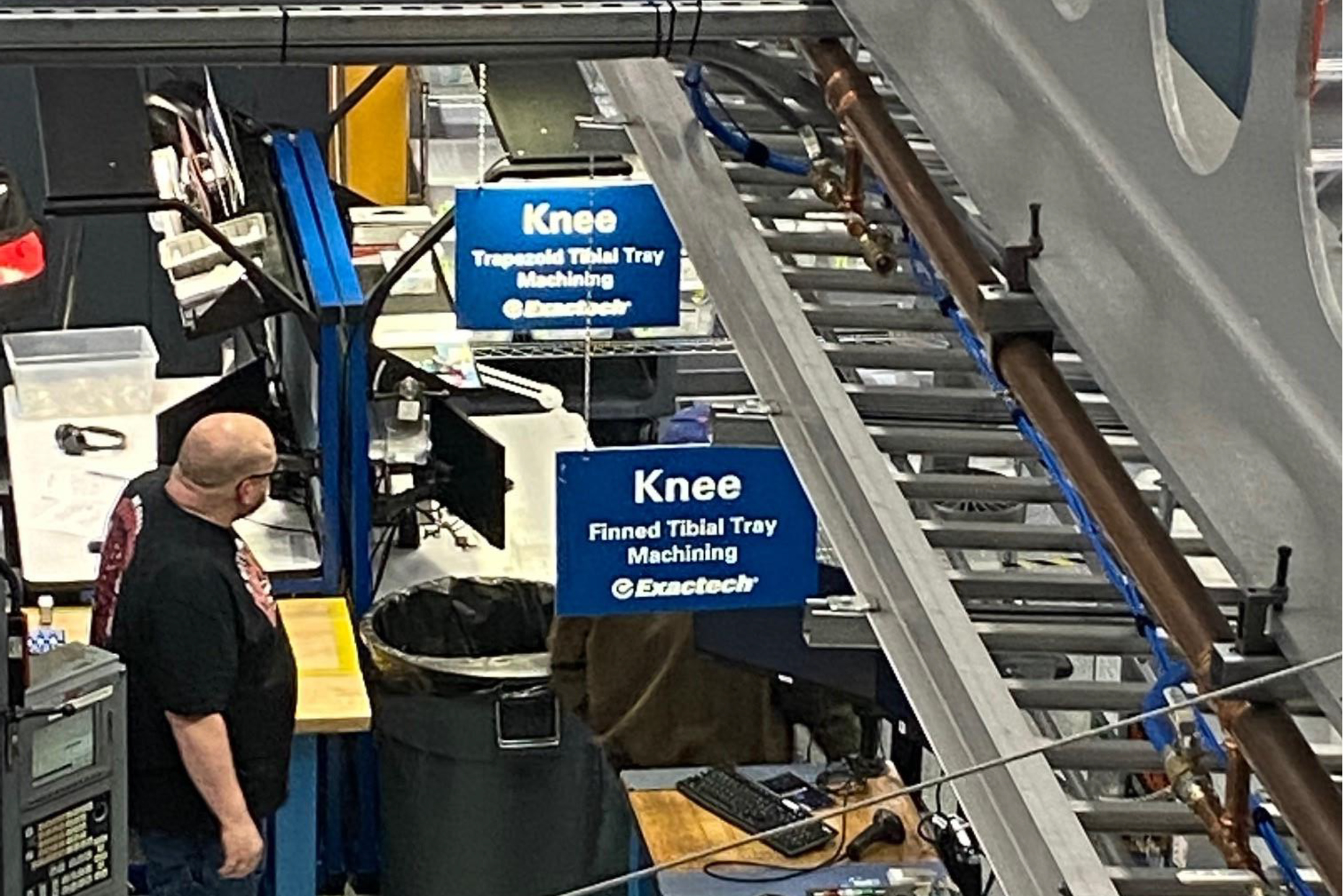Exactech, a Florida device manufacturer that faces more than 2,000 state and federal lawsuits from patients who allege the company sold defective hip and knee implants, filed for bankruptcy protection Tuesday.
The Gainesville-based company said in a statement it was restructuring and would be sold to an investor group of private equity and “alternative asset” firms, which would provide about $85 million in financing to fund the company’s operations.
Darin Johnson, Exactech’s president and chief executive officer, said in the statement that the device company faces “unsustainable liabilities associated with knee and hip litigation related to the packaging recalls we voluntarily initiated between 2021 and 2022.” The company said it would continue to operate during the bankruptcy proceedings.
“We take our commitment to patient well-being very seriously and have provided substantial out-of-pocket patient reimbursements and surgeon support for related expenses,” Johnson said.
The bankruptcy proceedings in federal court in Delaware will pause the lawsuits from patients seeking damages.
The surprise action dismayed lawyers representing injured patients.
“Exactech’s bankruptcy filing is a slap in the face to all the joint-implant patients and doctors who trusted the company. A medical device company that sells products for implantation in the human body has a special responsibility for public health,” said Joe Saunders, a Florida attorney who has sued the company on behalf of injured patients.
Saunders said the bankruptcy “serves to cover up public disclosure of the company putting profits ahead of safety.”
Injured patients were expecting one of the first jury trials against the company to begin in December in the circuit court in Alachua County, Florida. But the bankruptcy filing “stops the public trial and conceals the truth about the company’s conduct,” Saunders said.
Exactech, which grew over three decades from a small device manufacturer into a global entity, was the subject of a KFF Health News investigation published in October 2023.
The investigation found that, in hundreds of instances, the company took years to report adverse events to a federal database that tracks device failures.
Many of the lawsuits allege that the company’s knee and hip implants had an “unacceptable failure and complication rate.” Exactech has denied the allegations, and the company had no comment on the lawsuits.
Exactech began a series of recalls of artificial knees, hips, and ankles, starting in August 2021. Exactech initially blamed a packaging defect dating back as far as 2004 for possibly causing the plastic component to wear out prematurely in about 140,000 implants.
The KFF Health News analysis of more than 300 pending cases in Alachua County found that surgeons removed about 200 implants after less than seven years, far sooner than the 15 to 20 years these products typically last.
“I’m so angry. How did they [Exactech] think they are not responsible for this?” said Sue Sacher, 76, a New Jersey resident. She said she had her right knee replaced with an Exactech implant in 2006 and the left one done three years later, both at the Hospital for Special Surgery in New York.
Since then, she’s had both implants replaced.



